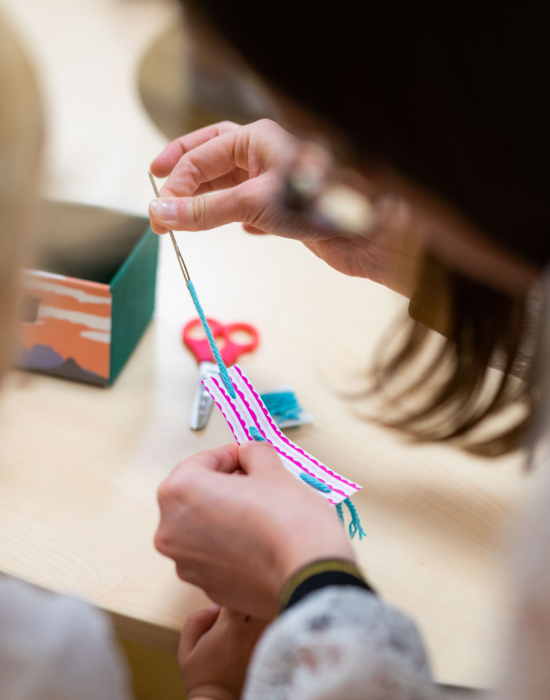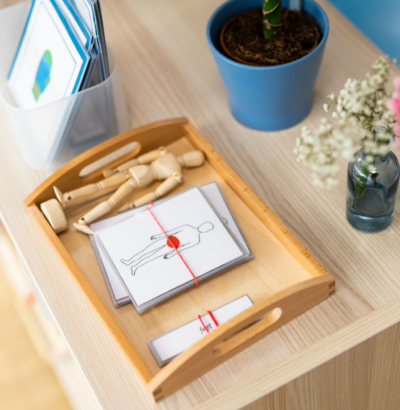What are the objectives of the Montessori pedagogy ?
The Montessori pedagogy used in our school has one major objective : the development of each child’s potential while respecting his or her individuality. It is based on the pleasure of learning, work and effort to achieve its objective.
The child becomes an actor in his or her learning and discoveries in a carefully prepared bilingual environment so that he or she can experiment while being guided by the educators in charge of the class. The material is adapted to the size and strength of the child in order to encourage more autonomy. After an initial presentation of the activities by the educators, the children are free to take them up and use them for as long as they wish. They are masters of their own choices in a structured, reassuring environment that responds to each stage of their development.
The classroom is therefore a place of learning but also a place of life and discovery where each child will gradually gain greater autonomy. We wish to allow the child to build the adult he or she will become; an adult who is a stakeholder in the society in which he or she lives.



